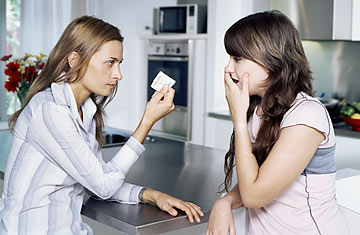
(3 of 10)
Nor are most teenagers. Though the number of very youthful marriages appears to be declining, a fourth of all 18-and 19-year-old girls are married. More often than not, they had already had intercourse: more than half of them got married because they were pregnant. But on the whole, teen-agers actually are not very active sexually, in spite of the large number of nonvirgins.
Of those questioned by the Johns Hopkins demographic team, 40% had not had intercourse at all in the month before the survey, and of the remainder 70% had done so only once or twice that month. About 60% had never had more than one partner, and in half the cases that one was the man they planned to marry. When promiscuity was reported, it was more often among whites: 16% admitted to four or more partners, while only 11% of blacks had had that many.
Teen-agers generally are woefully ignorant about sex.
They may believe that "most teen-age boys can almost go crazy if they don't have intercourse," that "you can't get pregnant if he only comes one time," or that urination is impossible with a diaphragm in place. Other youths cherish the notion that withdrawal, douching, rhythm or luck will prevent conception. Overall, "the pervasiveness of risk taking" is appalling, Zelnik and Kantner discovered. More than 75% of the girls they interviewed said they used contraceptives only occasionally or never.
To close the information gap, schools and colleges have begun to provide telephone hot lines, new courses, manuals of instruction and personal counseling. By dialing 933-5505, University of North Carolina students can get confidential information about pregnancy, abortion, contraception, sexual and marital relationships. More than 30 trained volunteer counselors answer 50 calls a week, with at least one man and one woman always on duty so that shy callers can consult someone of their own sex. Complex questions are referred to a dozen experts, mostly physicians, who have offered their help.
Away from the campus, counseling is hard to come by, but contraceptive advice is usually available, at least to urban teenagers, from private social agencies and public health departments. This has not long been so. Birth Control Crusader Bill Baird was arrested in
1967 for giving out contraceptive devices to Boston University coeds. His conviction was overturned last March when the Supreme Court ruled that a state could not outlaw contraceptives for single people when they were legal for married couples. In most states the law is ambiguous about giving teenagers birth control advice, particularly without parental consent. But nowadays many authorities
